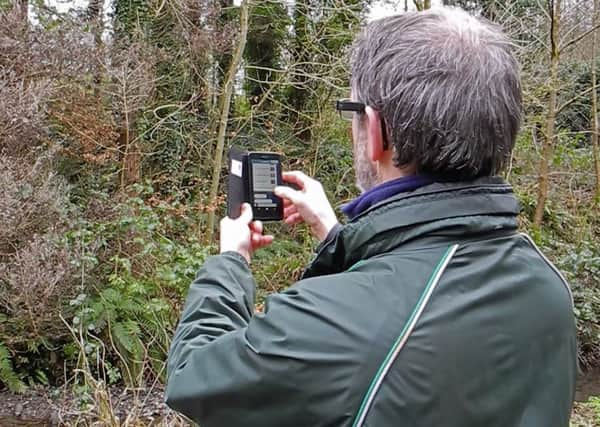Report tree pest damage online with ‘TreeCheck’


Intended for use by professionals, citizen scientists and concerned members of the public, the new platform is a joint venture between the Forest Service’s Plant Health Inspection Branch and the ROI’s department of Agriculture, Food and the Marine.
‘TreeCheck’ should be used when a suspect pest or disease is observed on plants or trees in the wider environment, for example, in forests, on roadside planting, private gardens, city or park planting. Remember, before accessing private land make sure you have the land owner’s permission first.
Advertisement
Advertisement
Featured on the Plant Health Inspection Branch stand at last year’s Balmoral show, ‘TreeCheck’ attracted quite a bit of buzz among visitors who had a keen interest in environmental issues like safeguarding Northern Ireland’s plant health. Staff were particularly delighted to get speaking to the young scientists of the future and were reassured that the younger generation will continue the critical work of supporting our plant health for years to come. Forest Service plan on featuring ‘TreeCheck’ again at the 2019 Balmoral Show and those involved hope to see you there.
Following the show, the number of ‘TreeCheck’ reports submitted increased by more than 600% compared to 2017 submissions. This is a positive development and reflects on the growing interest and concern the wider public have for our wider environment including plants and trees.
‘TreeCheck’ reports from citizen scientists in 2018 played a key role in assisting Forest Service Plant Health staff with the Ash Dieback (Hymenoscyphus fraxineus) survey as well as the identification and monitoring of sites infected with Spruce stem canker (Neonectria Fuckeliana) and Larch dieback (Phytophthora ramorum).
During the summer of 2018, Plant Health also received a small number of reports of suspect Emerald ash borer (Agrilus planipennis) findings which thankfully proved negative. The fact that these reports were received in the first instance is a reflection of the high level of interest and understanding that the NI public has about plant and tree health.
Advertisement
Advertisement
Eight-toothed European spruce bark beetle (Ips typographus) has been confirmed for the first time in the wider environment in a woodland in Kent, England. It poses no threat to human health, but can be a serious pest of the Norway spruce. Adults are usually 4.0–5.5 millimetres, so will prove difficult to spot with the naked eye. Organisers would welcome any suspect beetles to be reported via ‘TreeCheck’.
You can visit ‘TreeCheck’ at: https://www.treecheck.net/